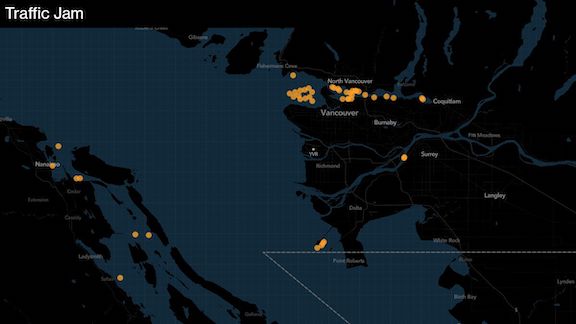Rail cars carrying goods for export are finally starting to trickle back in toward Vancouver, after train movement to and from British Columbia’s west coast was largely halted in the past week amid wildfire damage on two main tracks.
Ag Transport Coalition reported Wednesday that 91 rail cars carrying grains were unloaded at the Port of Vancouver, with more than 500 at different stages of arrival and others on the way.

Still, the number of cars unloaded Wednesday morning was 89% below last week’s daily average. That signals the resumption of rail movement to Canada’s largest port has been very slow and that the disruptions from the wildfires could snarl the flow of goods for some time to come.
About 4,000 cars remain in the corridor to Vancouver. Some are redirecting: The port at Prince Rupert, just south of the Alaska Panhandle, has seen a surge in rail cars, though its numbers are still lower than those in Vancouver as it’s a smaller port. One cargo vessel named Nikiland that appeared to be headed for Vancouver, made a sharp turn north earlier this week, in the direction of Prince Rupert, Bloomberg data show.
Meanwhile, ship traffic is starting to back up around Vancouver as the vessels await cargo that’s coming in by rail. Shipper Hapag-Lloyd AG warned its customers to expect delays of 72 to 96 hours in an email Wednesday.
The issues started after a fire that burned down a village in British Columbia last week damaged nearby tracks operated by Canadian Pacific Railway Ltd. and Canadian National Railway Co., the two companies that account for the bulk of train transportation to Vancouver. Grains, lumber, containers and other goods move along these lines.
Calgary-based Canadian Pacific Railway repaired its track, which was damaged near Lytton, B.C., about 275 km northeast (170 miles) of Vancouver. Montreal-based Canadian National Railway’s line sustained bridge damage, which has not yet been repaired.

Follow us on social media: